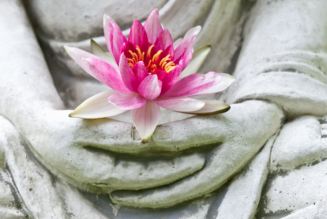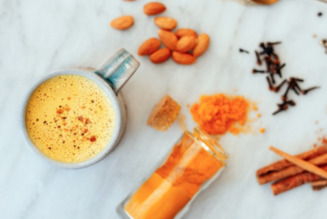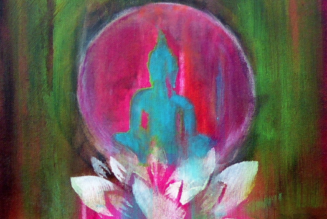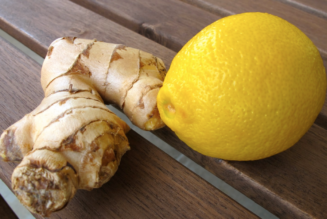Healthy Living With Ayurveda
“Samadosha, samagnischa samadhatumala kriyaha
prasanna atmenindriya manaha swasthya ityabhidheeyate”
Acharya Susruta has described the features of a healthy person in the above quote. It follows that the doshas must be in equilibrium, the digestive fire must be in a balanced state and the tissues (dhatus) and malas (wastes) must work in a normal state. The sensory and motor organs and mind, atma must be also in a pleasant state. Such a person is called a healthy person or “Swastha”.
Samadosha:
The doshas that are present in the body and mind, namely vata, pitta and kapha, must be in a balanced state in order to keep a person healthy. When the balance of the doshas is disturbed, either aggravated or decreased (vitiated) it produces a state of Dosha Vaishamya, which is called disease.
Organic Teas
To Help Balance The Doshas
Samagni:
In order to keep an individual healthy and digestive fire (koshtagni) and dhatuagni (tissue enzymes) must be in a proper state. When agni is less in quality (Mandagni) it will cause many diseases (“Rogaha Sarvepi Mande Agnou”). It is a well known that the health of an individual depends on the proper strength of his digestive power.
Ayurvedic Digestive Supplements
Good health depends on strong, efficient digestion.
Sama dhatu mala kriya:
(Balanced state of dhatus and malas): According to Ayurveda there are seven Dhatus namely Rasa, Rakta, Mamsa, Medas, Asthi, Majja and Shukra. And the excreta or Malas – purisa (faeces), Mutra (urine), Sweda (sweat). The dhatus of the body must function properly and so also the malas of the body.
Ayurvedic Detox
11 Ayurvedic herbs to gently cleanse the liver & colon of impurities.
Prasanna Atmendriya Manaha:
In Ayurveda, the functions of the sensory and motor organs along with the mind have been given special importance. When these are not in equilibrium and not performing their functions properly, it will lead to a state called disease. Even when the bodily systems function properly the bodily activities must not vitiate or disturb the nature of the mind. The state of mental health is more important than that of physical health of a truly healthy person.
Stress Free Emotions
Powerful formulation with arjuna, amla & ashwagandha
“Swastha” – The Healthy State
“Swastha” or the healthy state maintained from birth along with the three doshas remaining in a balanced state, allowing the person to achieve a well-balanced constitution, attractive appearance, good muscular strength and complete peace of mind. Good health can be maintained until death. For this one should intelligently follow all the rules laid down according to the science of Ayurveda. Only then will a person enjoy an optimum life span of a hundred years without contracting disease. He will also gain recognition in society, friendship with people and honour and wealth as he has the energy and ability to achieve all the goals in life.
How Ayurveda Classifies Food – by Dr. Neelesh Korde
In this video, Dr. Neelesh Korde advises that before choosing a diet, we must understand how the foods we eat will affect our body. Ayurveda is based on the qualities of the food that are passed on to the person consuming that particular food.
“The aim of Ayurveda is to prevent illness,
heal the sick and preserve life.”
The Aim Of Ayurveda
This can be summed up as follows:
• Swasthyas swasthya rakshanam – to protect health and prolong life
• Aturasya vikar prashamanamcha – to eliminate diseases and dysfunctions of the body
And both these are aimed towards the promotion of health on three levels:
• Mentally
• Physically
• Spiritually
How can Ayurveda help you to remain healthy?
Specialized Ayurvedic remedies such as Panchakarma chikitsa, Shirodhara or following an Ayurvedic diet, basically endeavor to restore the harmony of the tridoshas. The purpose of all Ayurvedic remedies and herbal medicines is to keep the doshas or the humors in equilibrium, since an imbalance indicates a disease condition. Samsodhana (cleansing process), samsamana (palliative measures) and nidanaparivarjana (treating the causes) are the three main stages through which Ayurvedic remedies usually progress.
About The Author:
Dr. Gaurang Joshi, B.A.M.S. (Gold Medalist, Gujarat Ayurved University) is an international Ayurveda consultant, expert Ayurveda skin specialist, Ayurveda Oncology expert and the Director of the Atharva Multispeciality Ayurveda Hospital, Panchakarma And Skin Care Hospital, Rajkot. He is President of the International Psoriasis Foundation and has been in practice for the last 19 years. Gaurang Joshi has published more than 12 papers in national and international conferences on Dermatology and Oncology research.
- B.A.M.S., M.D.(Alternative Medicine),M.E.T.C.
- M.D.(A.M.) from IIAM
- Consulting Ayurved Panchkarma Physician
- Expert In All Chronic Diseases
- Ayurveda Skin Specialist
- Expert In Ayurveda Oncology
- President-International Psoriasis Foundation




![Female Health: Amenorrhea [cessation of menses] – An Ayurvedic Perspective](https://healthyayurveda.com/wp-content/uploads/2015/07/1.-Amenorhea--327x219.png)



